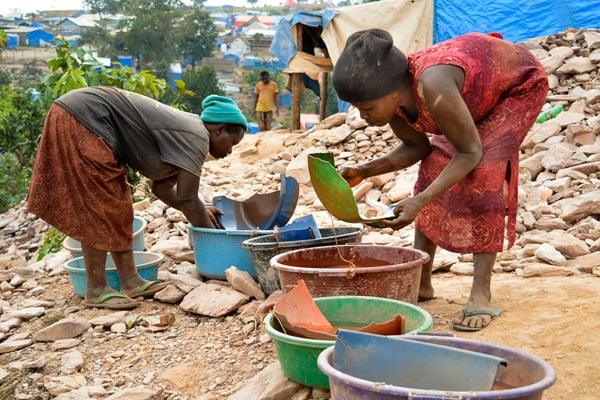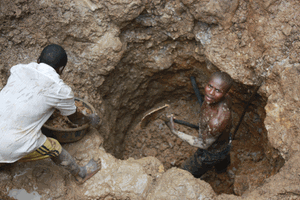
Lynn Gitu
In 2022, Uganda passed the new Mining and Minerals Law, which for the first time, integrated provisions governing artisanal and small-scale mining (ASM). The new law includes provisions to ensure responsible mining practices, including health and safety, gender equality, as well as environmental protection.
Recently, Ministry of Energy and Mineral Development officials, alongside State minister for Minerals, Phiona Nyamutoro, travelled across four regions of the country popularising new ASM regulations and seeking miners’ views. One of the new regulations is the introduction of exclusive artisanal mining zones where registered artisanal miners may apply for licences to legally work. This is a critical aspect in the formalisation of ASM operations across Uganda, ensuring artisanal miners are part of the legal economy.
Formalising Uganda’s artisanal gold mining sector is the first step towards sustainable development, improved livelihoods, and environmental protection. However, these benefits might continue to be a far reach if miners keep working alone or in unorganised groups.
The planetGOLD Uganda project and its stakeholders agree that there is a growing recognition of the importance of cooperatives in the ASM gold sector both in Uganda and globally.
The project has been supporting the move towards responsible ASM gold practices in Uganda for more than a year, advocating for and training miners on strong and equitable cooperatives as a key strategy for improving their livelihoods and communities. The trainings focus on the Cooperative Societies Act provisions and requirements which miners need to submit to in order to benefit from government programmes.
In Uganda, as in many parts of the world, artisanal gold miners, despite their hard work, face numerous challenges ranging from economic uncertainties to environmental issues. Amidst these challenges, the formation of cooperatives stands out as a crucial step towards sustainable development and community empowerment.
Cooperatives offer artisanal gold miners a powerful mechanism to enhance their collective strength and resilience. By pooling resources and expertise, these groups can access better mining practices, technological innovations, and market opportunities that would otherwise be out of reach for individual miners.
Many miners across Uganda are already part of associations, which will hopefully spur formation of cooperatives.
In Central Uganda’s Kassanda District, the Kitumbi-Kayonza Miners Association supports artisanal gold miners to acquire loans to process their gold. The same Kayonza mine site is home to multiple groups, including a women’s cooperative, which pools 5 points of gold (a point in gold measurement is 0.1 unit of a gram) weekly. The women decided to jointly save and sell their gold after realising that selling as a group earns them a higher profit and enables their businesses to thrive. This cooperative so far has 30 members.
One of the primary advantages of cooperatives is their ability to negotiate fairer prices for their products. Miners who work individually often struggle to negotiate with middlemen and gold buyers who may exploit their lack of bargaining power. As a cooperative, however, it can be easier to negotiate from a position of collective strength, ensuring that members get a strong price for their gold in line with their labour and with a good return on investment.
Beyond economic benefits, cooperatives empower miners by providing a platform for collective decision-making and advocacy, enabling them to voice their concerns and influence policies that affect their livelihoods. Cooperatives offer a structure through which miners can engage with government agencies, banks and non-governmental organisations to shape more supportive laws and acquire support.
This week, the world will commemorate International Day of Cooperatives under the theme, “Cooperatives Build a Better Future for All.” Given this theme, the formation of cooperatives among artisanal and small-scale gold miners in Uganda is not just beneficial but essential. By sensitising and supporting miners to form cooperatives, Uganda can harness the potential of its ASM gold sector to create lasting positive impacts for miners, their families, and the entire community.
Ms Lynn Gitu, Project Manager, planetGOLD Uganda




